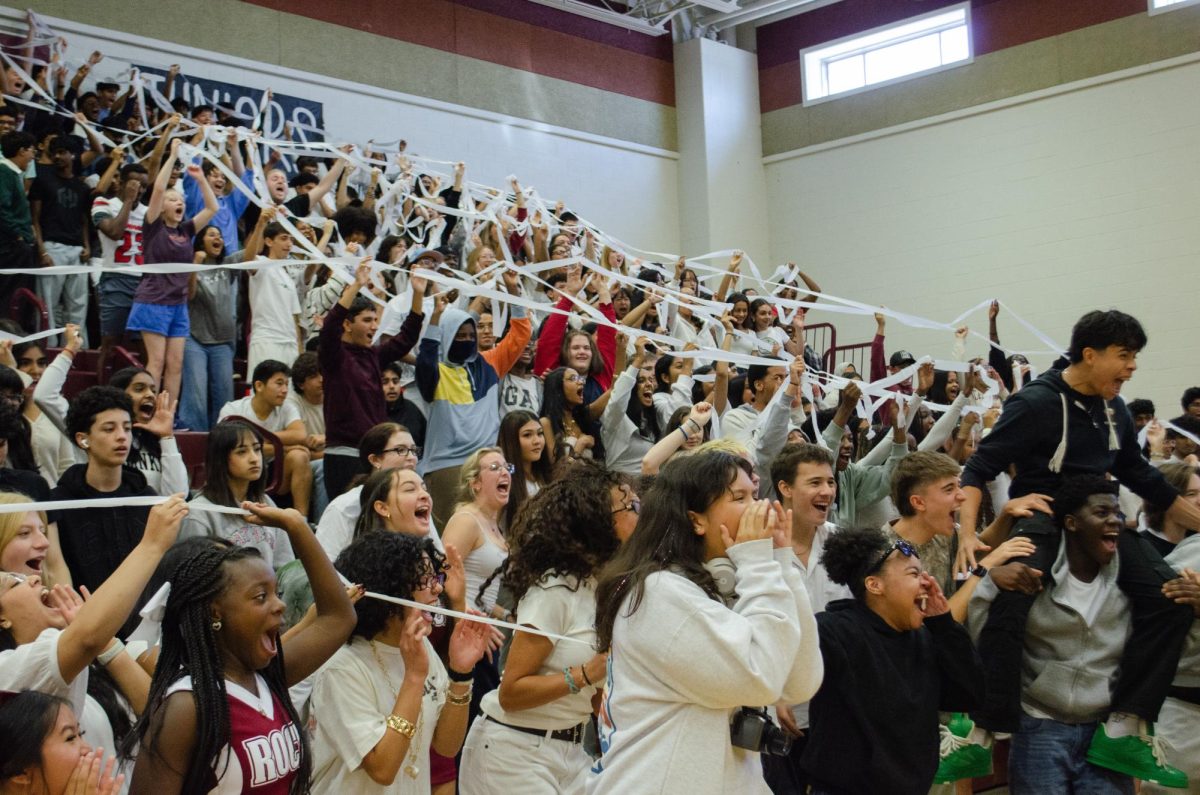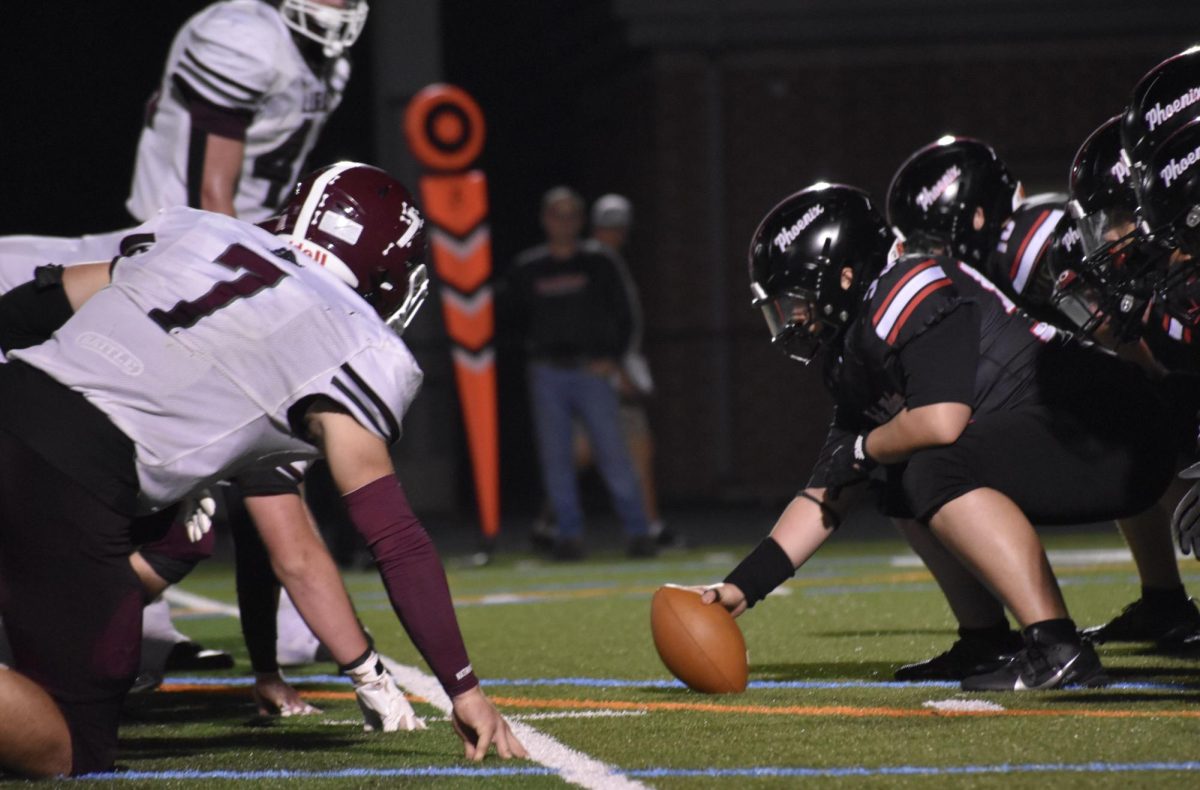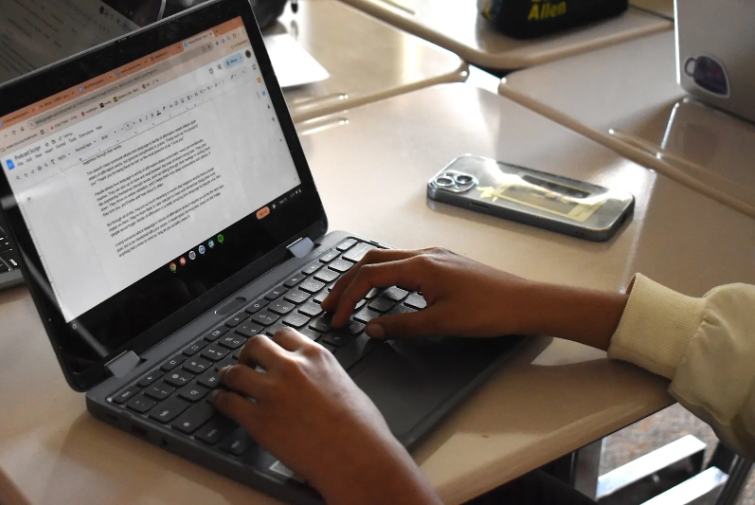As the school year winds down, so does the severity of the cell phone policy. The cell phone policy has been adopted by schools for the past 10 months following executive order 33 that Governor Glenn Youngkin issued for all schools in the state of Virginia. This new cell phone policy is planned to continue in future school years. Students have experienced many different shifts in their classes ever since the phone policy was implemented, and it has updated classroom learning for all grades.
The new cell phone policy was a big change for the 2024-2025 school year. Before the policy was enforced, students were able to access their phones during lessons or keep their phone on them at all times. This interfered with many students’ learning and engagement during class lessons, and changed the pattern of students being occupied by their phones. Junior Soliyana Ashenafi had to get accustomed to putting her phone up in the pouch since the first day of school. “It was a big change for me since I’m used to keeping my phone in my backpack or on top of my desk flipped upside down,” Ashenafi said.
Teachers were struggling to teach students when they were on their phones 24/7. Students were not engaged with the class lessons which eventually led to students falling behind and not doing well in their classes. It was also a waste of time on teachers because most students failed to concentrate and do their work. Teachers have continued to let students be independent while also preparing them for the real world by letting students make their own decisions on their phone exposure during class. They also let students know that they must commit to doing all of their homework and classwork so they can get a good grade in the class.
The implementation of the cell phone policy shifted swiftly after the first few months of the school year. Teachers started to take a more casual approach to the phone policy, while also maintaining student focus throughout instruction. With the help of the phone policy, teachers can easily build an interest in their classes without any struggles.
For English teacher Timothy Greening, the policy has greatly shifted the classroom environment into a positive attitude. “I try to incorporate lessons on meditation and other techniques that help others manage their attention,” Greening said. “I started out the year on ‘Hey, this is an opportunity for you to learn how to control your own mind, and what you’re paying attention to.’ That was something important to me, to make it something to learn from. At the end of the day, it’s all about what individual students do to manage their own attention.”
Not only has the cell phone policy been very beneficial for students’ learning and academic growth at school but it has also greatly improved student’s mental health and peer relationships. Many students, such as sophomore Anishka Shrivastava, noticed a change in her surroundings such as attention span and worth ethic during class time. “I see my peers more concentrated during class time as well as more productive and efficient with their work,” Shrivastava said. “It greatly benefits our mental health as we are able to interact with others in person and socialize rather than being glued to our phones. I also find myself more active during class time as I am able to get my work done faster. It helps me focus in classes much better.”
Rock Ridge has stood a pretty balanced ground amongst the cell phone policy. While they encourage teachers to do what’s best for their students, they still encourage them to keep track and write up any students who are excessively using their phone during class time, so they can face disciplinary action. Even though the policy has become more lenient in the classroom, teachers still want students to thrive in their class, and thriving requires students to give their undivided attention to teachers during class lessons.
Ultimately, the cell phone policy is set to continue forward to the 2025-2026 school year, with many teachers, such as Greening anticipating the policy to remain unchanged. “I don’t anticipate any changes, but I plan to be more vigilant about it,” Greening said.

























![The Phoenix varsity volleyball team lines up for the national anthem. “We were more communicative [with each other] during this game, and I feel like we kept our energy up, especially after the first set,” senior Jessica Valdov said.](https://theblazerrhs.com/wp-content/uploads/2024/10/DSC_0202-1200x800.jpg)










![Junior Alex Alkhal pitches the ball. “[I] just let it go and keep practicing so we can focus on our goal for the next game to get better as a team,” Alkhal said.](https://theblazerrhs.com/wp-content/uploads/2025/05/DSC_0013-1-1200x929.jpg)
























